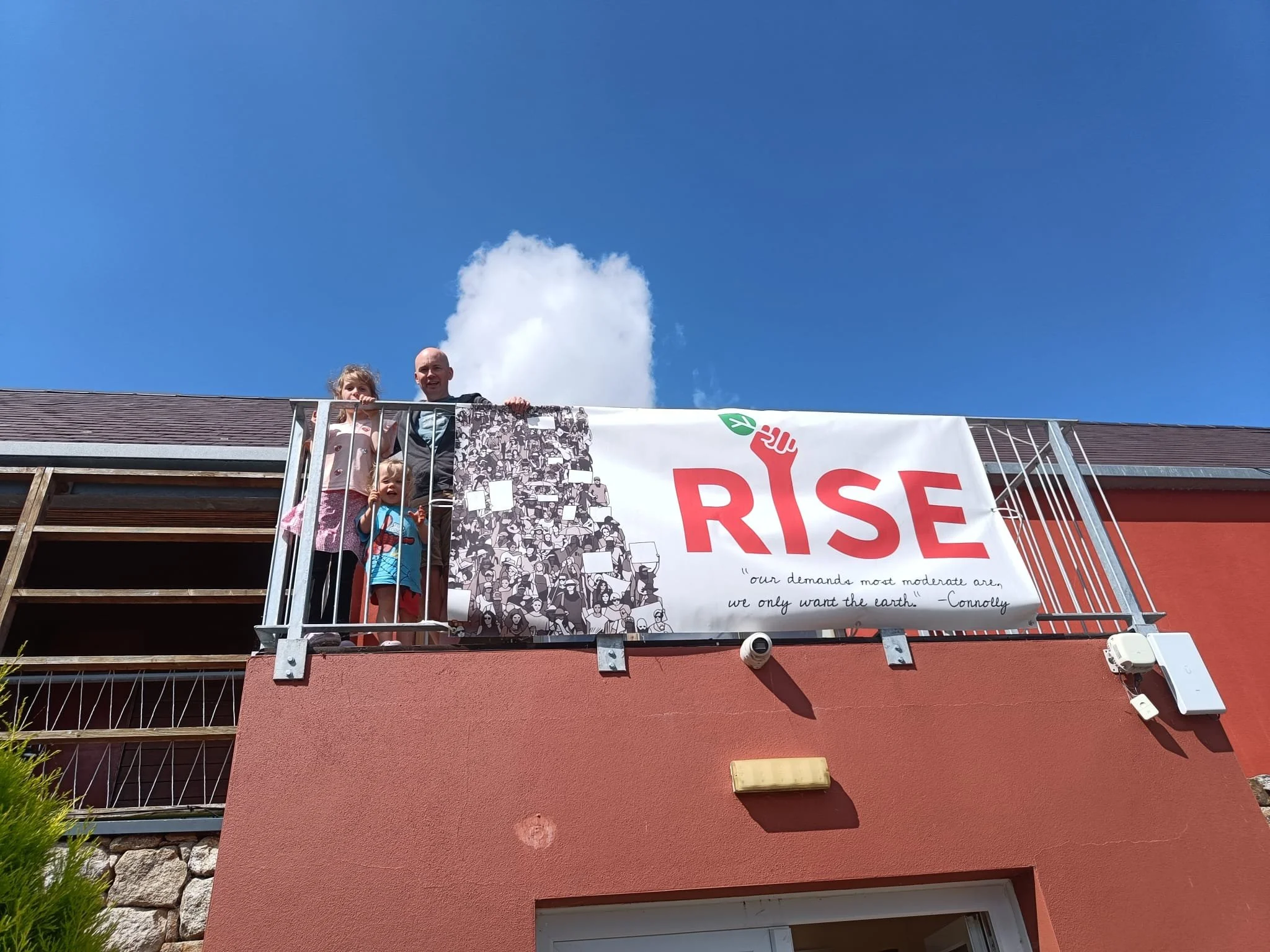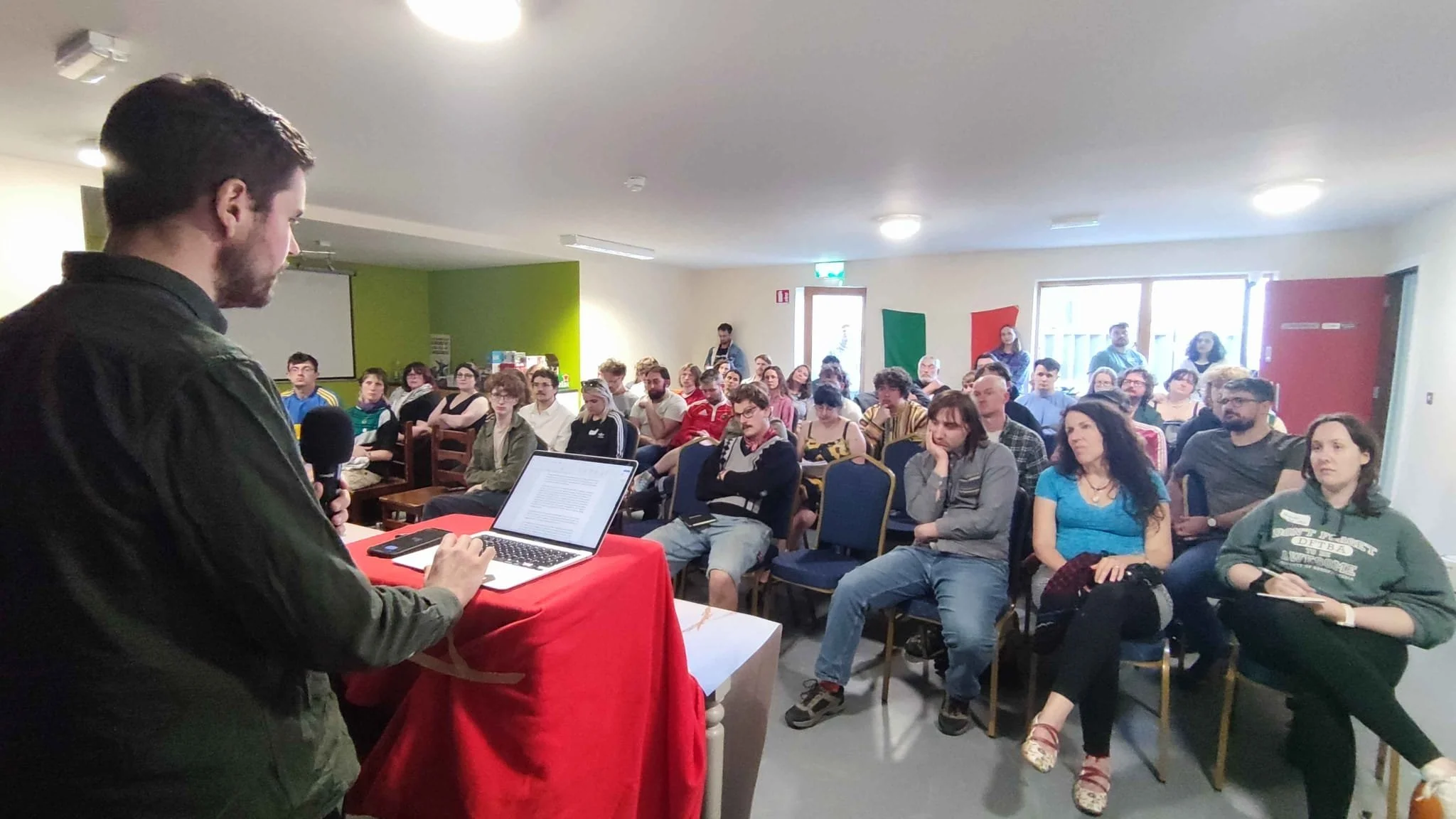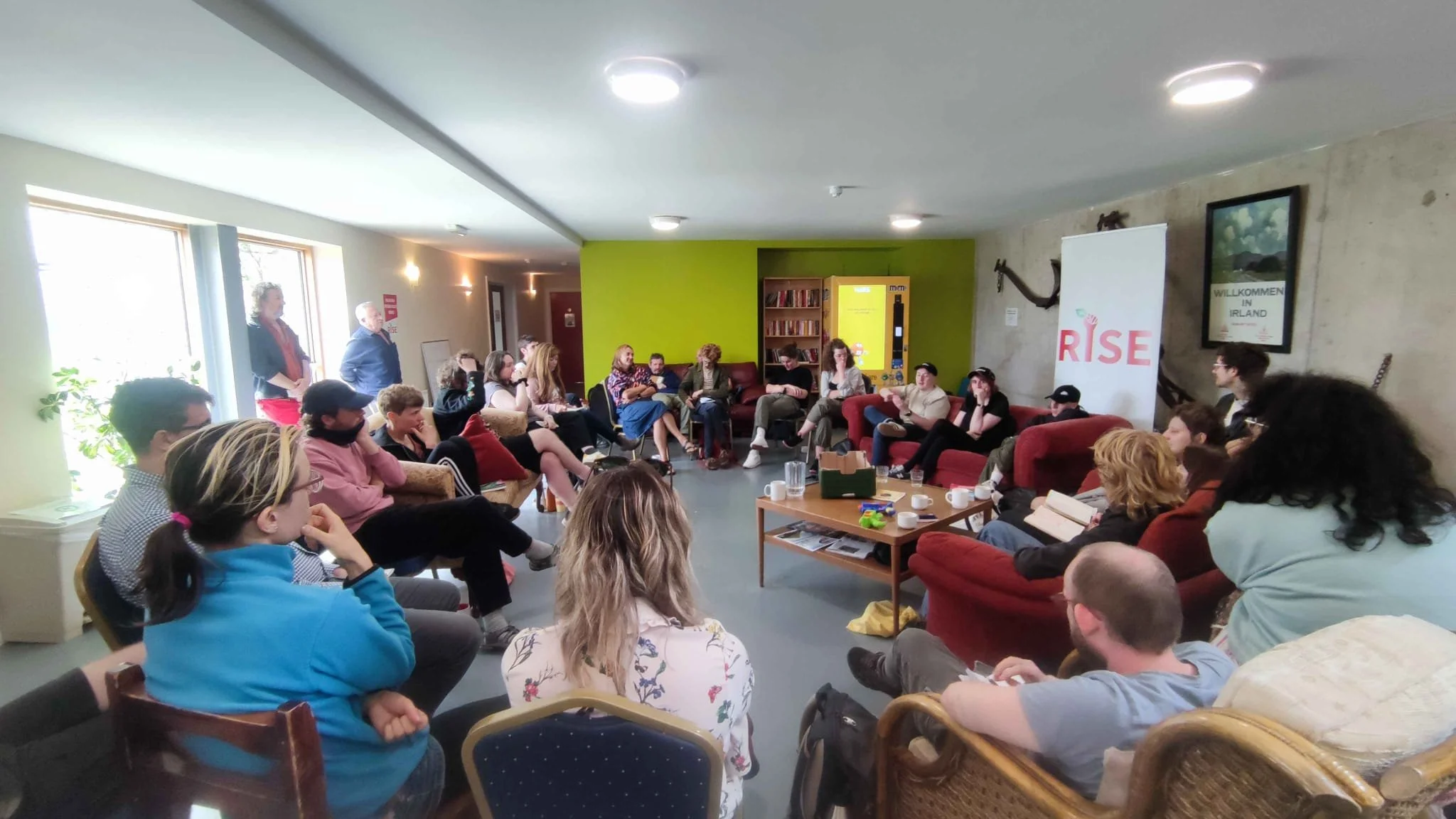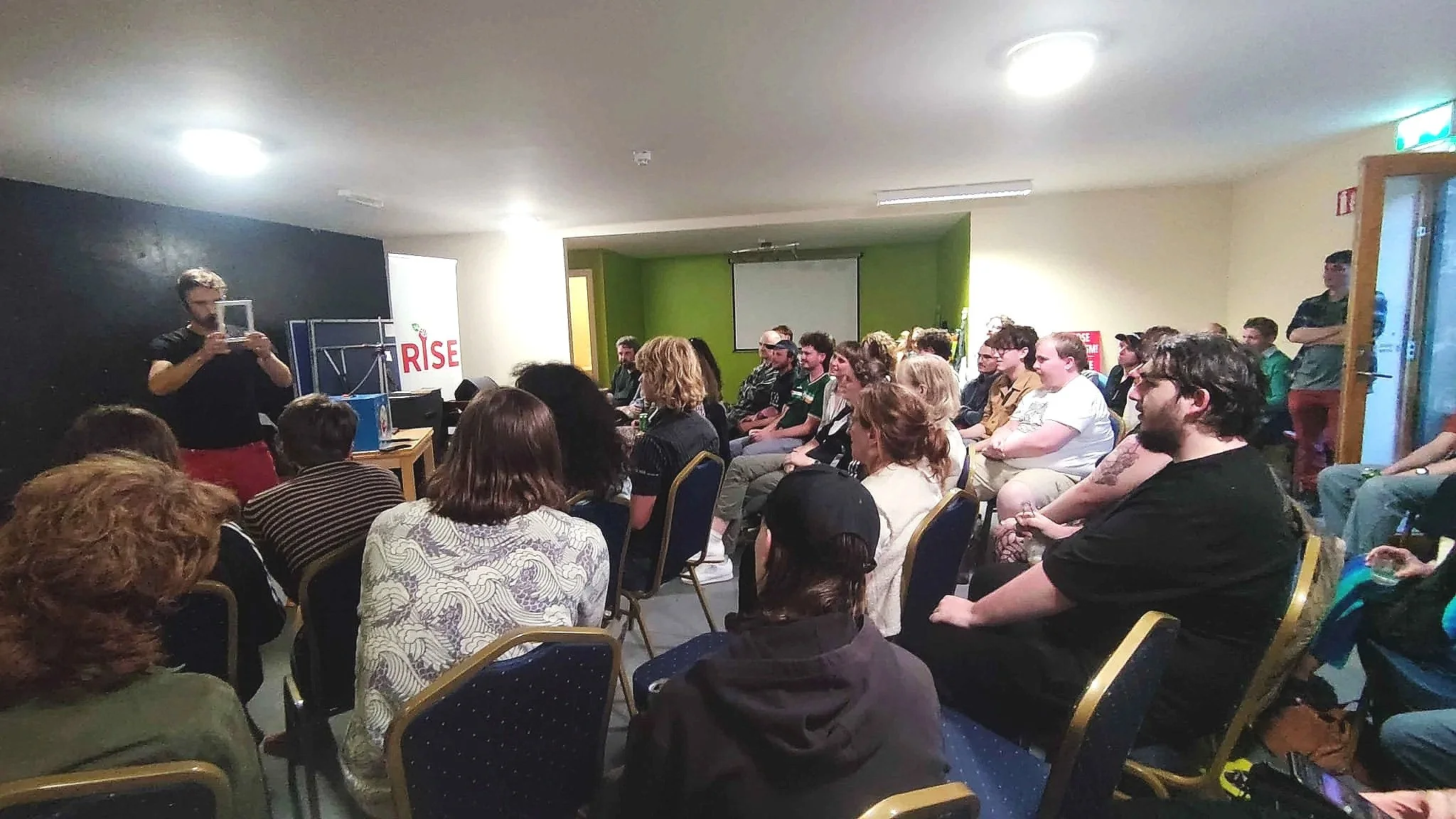
RISE’s 4th annual Ecosocialist Summer Camp was held in Knockree, Wicklow with over 90 members, comrades, and friends attending throughout the weekend. We were delighted that, for the first time, a majority of the campers were women and nonbinary people. This reflects a growing radicalisation of young women who want to join the struggle against the feminist backlash. The camp had three plenaries Socialist feminism in the age of reaction, Ecosocialism against capitalist growth, and The main enemy is at home: how should we fight against imperialism and militarism in Europe, and 12 commissions on topics ranging from The 4B movement in South Korea: reproductive labour and the manosphere, We should all be Luddites, and Palestine: the ongoing struggle against genocide (see the full schedule here).We’ll be sharing some of these talks on Rupture Radio, so stay tuned!

Kai Heron speaks about the principles of ecosocialism

Eileanór Ni Ruairc discussing the economics of climate change
In many ways, though, these camps are more about the time in between talks when we get a chance to meet people from around the world and create a community together - cooking and cleaning, minding the children, and playing collectively. Each evening had a different social - Friday night had a céilí, we sang karaoke on Saturday, and for the final evening, we were treated to a new play by comrades in rs21 and a politically-infused magic act by Magic Darragh.


Magic Darragh performs
The politics and socials combined to forge new bonds between RISE and our invited guests, which included Kai Heron, Eileanór Ni Ruairc, Uma Josette from the Working Class Climate Alliance in Britain, Patrick Bresnihan, Rosi Leonard (CATU), Nicolas Rother from Die Linke, Justin Bec-Canet from La France Insoumise, Brais Fernández from Anticapitalistas in the Spanish State, Socialist Youth Front from Denmark, and rs21 and Anti*capitalist Resistance from Britain. We look forward to continued discussion, debate, and collaboration as we struggle against capitalism and work towards an ecosocialist future.
